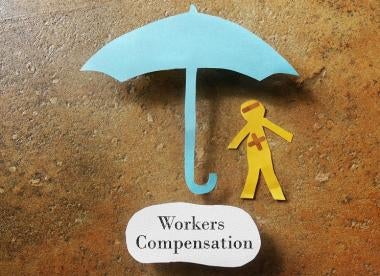Section 5(b)
Section 5(b) of the Workers Compensation Act allows recovery of payments made by employers in Workers’ Compensation claims. Who doesn’t like getting a reimbursement, right? Section 5(b) recognizes that injury or death compensable under the Act may occur in circumstances where there is a legal liability for damages on the part of some person or entity other than the employer. The statute authorizes legal proceedings, commonly called third-party actions, by injured employees against such persons or entities.
Section 5(b) of the Act provides:
Where the injury or death for which compensation is payable under this Act was caused under circumstances creating a legal liability for damages on the part of some person other than his employer to pay damages, then legal proceedings may be taken against such other person to recover damages notwithstanding such employer’s payment of or liability to pay compensation under this Act. In such case, however, if the action against such other person is brought by the injured employee or his personal representative and judgment is obtained and paid, or settlement is made with such other person, either with or without suit, then from the amount received by such employee or personal representative there shall be paid to the employer the amount of compensation paid or to be paid by him to such employee or personal representative including amounts paid or to be paid pursuant to paragraph (a) of Section 8 of this Act.
820 ILCS 305/5 (b).
Should the employee not take action by filing a third-party action, the employer may file an action in order to reimburse itself three months or less before the running of the Statute of Limitations. If there is a successful third-party recovery, the employer must pay a “pro rata share of all costs and reasonably necessary expenses in connection with such third-party claims,” as well as a 25 percent reimbursement as an attorney’s fee.
Duty to Notify
The employer is entitled to notice of any third-party action and has the right to intervene in the action. Section 5(b) does place a duty on the employee to notify the employer by personal service or registered mail of the fact of the filing and the name of the court in which the suit is brought. While this is a statutory duty placed on the employee, it is rare in practice. We have seen instances where petitioners settled and received payment for an auto-accident recovery prior to even filing an Application for Adjustment of Claim with the Workers’ Compensation Commission. It was only thorough investigation that uncovered the prior payment made directly to the petitioner. While the employer was not a part of the civil claim or recovery, they can and should still utilize that recovery as a credit toward any future PPD payments. That is why we recommend being proactive in contacting petitioners, legal counsel, and even monitoring circuit court filings in order to protect a Section 5(b) lien recovery.
The Strength of the 5(b) Lien
The Illinois Supreme Court has held that, in the instance where the judgment will not satisfy the lien, the employee is required to tender the entire judgment to the employer minus the statutory 25 percent in attorney’s fees and pro rata share of the costs. Silva v. Electrical Systems, Inc., 183 Ill. 2d 356 (1998).
Recent Case In re Estate of Rexroad
We are pleased to report a recent ruling in the Appellate Court, Fifth District, a decision issued May 15, 2018, supporting the workers’ compensation lien. In In re Estate of Rexroad, 2018 IL App (5th) 170342, the appellate court ruled that the employer's Section 5(b) lien cannot be subject to reduction or elimination due to conduct on the part of the insurer in its handling of the workers’ compensation claim itself, in its cooperation with an investigation of third-party causes of the injury, or in its negotiations with employee as to satisfaction of its lien.
In this case, Arnold Rexroad Sr. was alleged to have been killed in the course of his employment. His Estate filed a probate action in circuit court in Illinois in order to obtain an order appointing specific heirs to serve as special administrators to pursue a wrongful death action arising from the death of the decedent. The employer was a member of a self-insured pool association (MTRMA) that provided workers’ compensation benefits for its members and employees. Decedent’s widow, applied for, received, and continued to receive workers’ compensation benefits for the death of the decedent from MTRMA. MTRMA was made aware of a partial settlement in Indiana for the underlying wrongful death claim and requested intervention in the probate matter for purposes of protecting its lien pursuant to Section 5(b). MTRMA wanted to be a part of any settlement of the Indiana action. MTRMA requested a partial satisfaction of its workers’ compensation lien out of the first partial settlement.
The Estate, in response, filed a motion to adjudicate the workers’ compensation lien, in which it requested that the remainder of the lien be stricken in its entirety. The arguments were that MTRMA was involved in wrongdoing by (1) direct communication with the family of the decedent despite knowing the Estate was represented by counsel; (2) obstructing the Estate’s counsel in investigating the wrongful death action by prohibiting the Estate from interviewing its employees, refusing to produce the truck and trailer the decedent was driving for inspection, and providing its inaccurate “alive and well” investigative reports to the defense; (3) failing to pay the decedent’s widow the full amount of workers’ compensation benefits owed; (4) demanding a distribution toward its lien from the Indiana settlement; (5) objecting to an unspecified amount of costs claimed by the Estate as required to effect a settlement of the remainder of the Indiana action; and (6) seeking to recalculate its pro rata share of costs in light of the settlement of the remainder of the Indiana action, which the Estate characterized as a “reneg” of its prior agreement to pay its share of costs as the time of the Indiana settlement.
The appellate court appropriately found that under Section 5(b) of the Act, an employer’s right to reimbursement of the full amount of benefits paid or to be paid to worker is absolute. There is no basis in Illinois law to hold that alleged conduct on part of lien holder outweighs absolute right that it has to reimbursement of its lien.
Practical Tips when Negotiating Claims with 5(b) Liens
When a claim comes in it is important to determine immediately whether any civil liability may exist against someone other than the employer. The statute of limitations for filing a civil action should also be documented and monitored. In Illinois, the statute of limitations for filing a civil action is not the same as that for filing a Workers’ Compensation claim. The statute of limitations for filing a claim with the Workers’ Compensation Commission is the longer of three years from the date of accident or two years from the last payment of benefits. The statute of limitations for filing a personal injury action in Illinois is only two years. It is possible for the statute of limitations for filing a personal injury action to run even before the Petitioner has filed the Workers’ Compensation claim.
In practice, quite frequently, we are approached with a request from opposing counsel for part or all of the 5(b) lien to be waived in order to facilitate a settlement. This should not be entertained unless there is a benefit to the employer. The employer can use this potential compromise to leverage a reduction in future payments, or even to obtain an outright dismissal of the workers’ compensation claim.
For instance, Petitioner is a traveling employee involved in an automobile accident. The adverse driver is in compliance with the mandatory insurance law in Illinois with a minimum vehicle liability insurance policy of $25,000 individual /$50,000 per occurrence. Petitioner settles with the opposing driver’s insurance company for the policy limit of $25,000 and deposits the money into his bank account. He then later files an Application for Adjustment of Claim with the Illinois Workers’ Compensation Commission against his employer for the same injuries.
Prior to participating in any settlement negotiations of the Workers’ Compensation claim, the employer needs to determine what attorney’s fees and expenses may have accrued in order to finalize the third-party recovery. The employer’s recovery is reduced by 25 percent for attorney’s fees and a pro rata share of the costs. If costs were incurred, the employer’s recovery is reduced by a prorated share. In this hypothetical we are going to assume $500 was incurred in expenses since it was settled pre-suit.
Third party recovery: $25,000
Employer’s Recovery:
Gross recovery for employer $25,000
Less:
25% attorney’s fees -$6,250
Expenses (pro rata share) -$ 250
Net to employer: $18,500
This example illustrates the methodology used to calculate the employer’s projected recovery in this simple scenario. The maximum recovery under the scenario above is $18,500. As you are likely aware, not all third party recovery is sufficient to cover the workers’ compensation exposure. In most future settlement negotiations, you should proceed with the position that the employer is NOT waiving any part of their Section 5(b) lien rights and expects a full recovery as part of any settlement agreement. Similarly, if the PPD settlement pursuant to Section 8(d) or 8(e) would be close to the same amount, we can negotiate a settlement agreement of $1.00 to be approved by the arbitrator. Proceeding this route closes out Section 8(a) future medical rights once the arbitrator approves the settlement contract. In instances where there is possible contribution liability due to the employer waiving its Kotecki protection, the employer can waive its Section 5(b) lien in order to avoid contribution liability.
The decision of whether to pursue a third party claim or whether to compromise your Section 5(b) lien should be based on careful consideration of these issues.




 i
i


